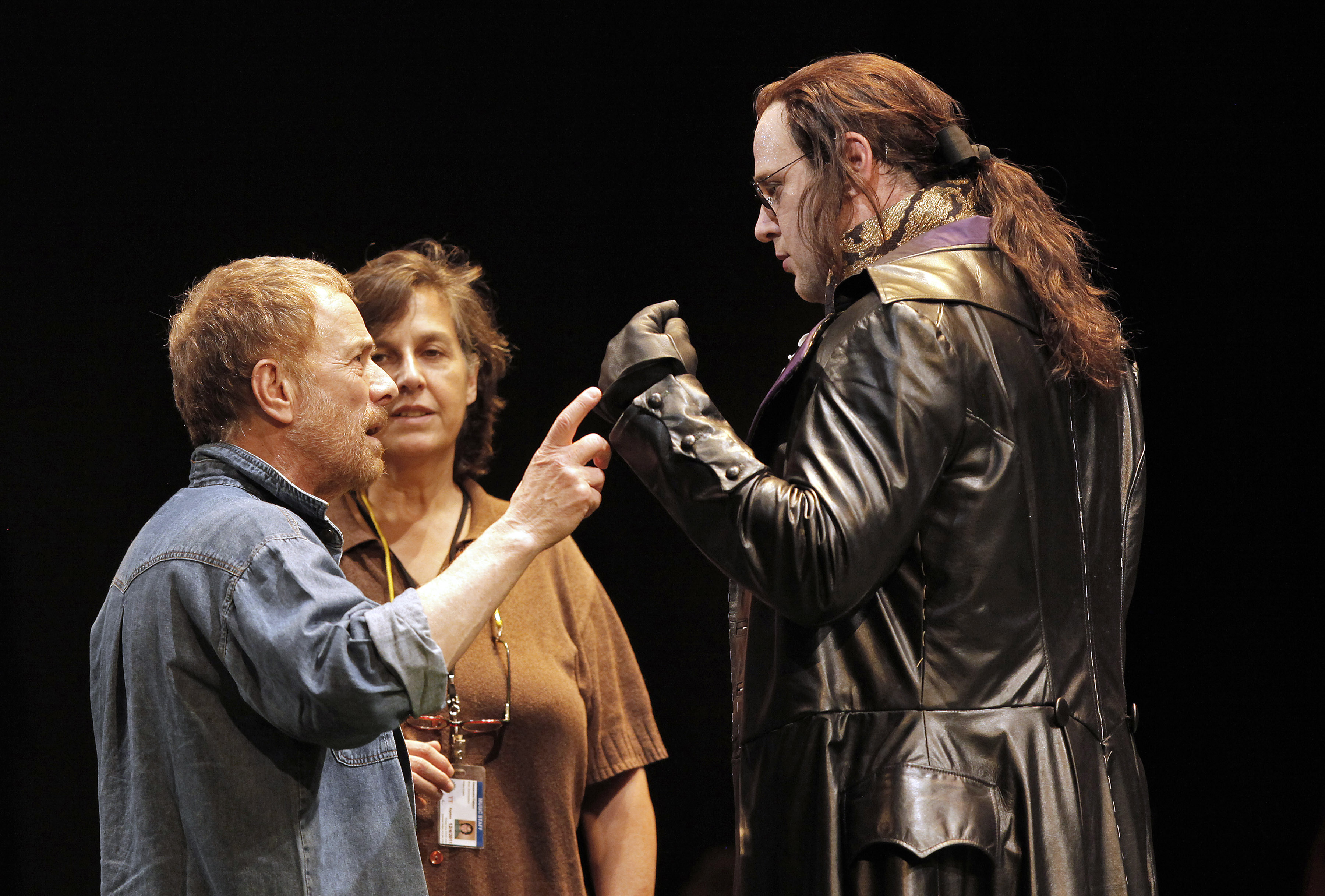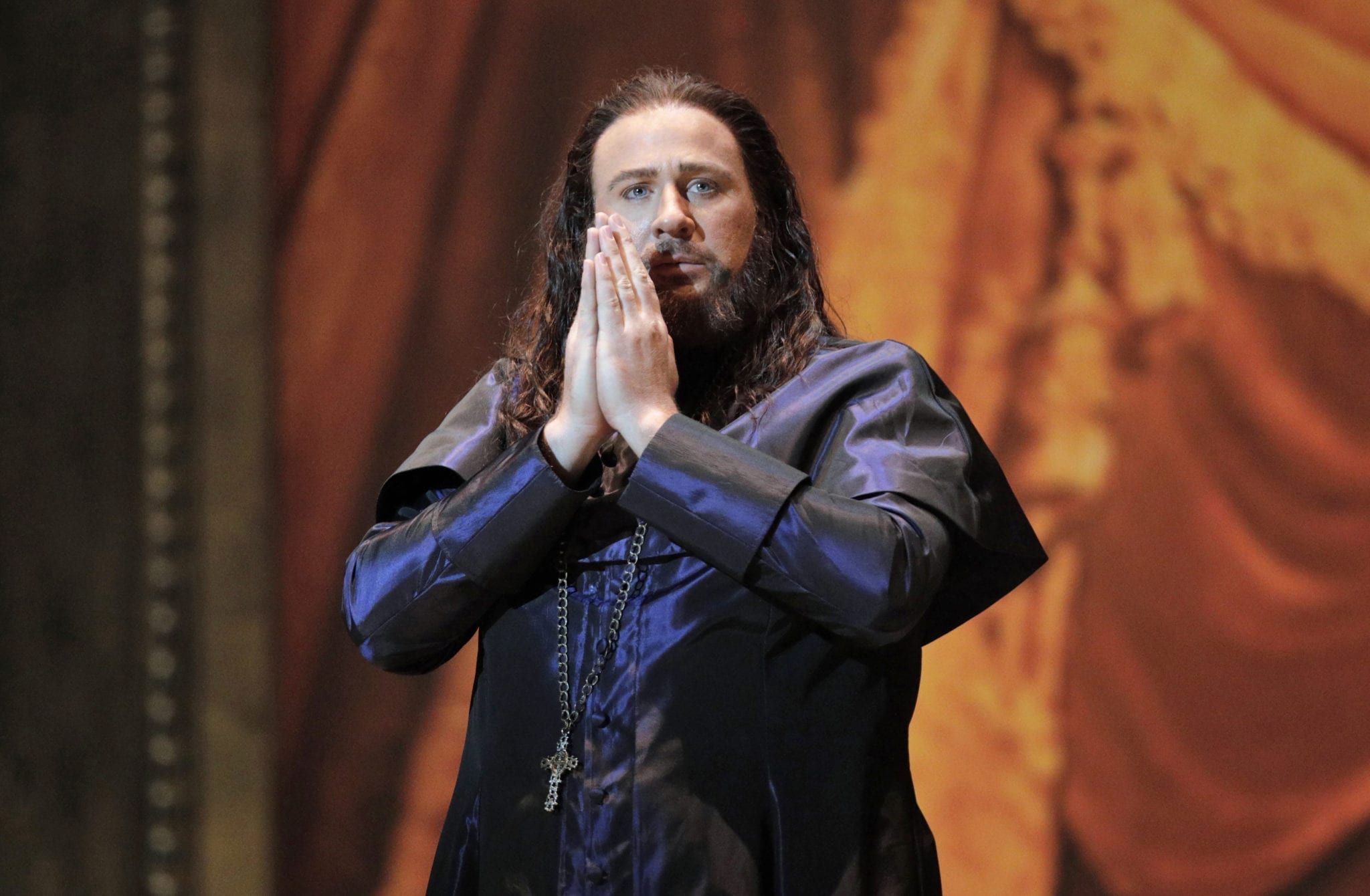
Because the rehearsal place is sacred ground, here are my 10 Commandments of Rehearsal.
1. Thou Shalt Not Be Late
The fastest and easiest way to start a rehearsal on the right foot is to arrive on time. You immediately show respect and professionalism for the rehearsal process and everyone in the room. Plan ahead and shoot for being early. Especially if it’s the first day and you’re in a new city, as parking or public transportation can be tricky.
We’re all working together as a team and when one of us doesn’t show up on time, it’s hard for the rest of the team to get things going. When you show up late, you enter the room apologizing with hat in hand—never a good way to start a productive rehearsal.
Sure, exceptions and extenuating circumstances happen, so if you are arriving late, call the rehearsal department right away and let them know. I call the rehearsal department even if I’m going to be one minute late. Try your absolute best to not make being late a habit.
2. Thou Shalt Not Arrive Unprepared
There are a few fireable offenses in the realm of opera and this is one of them.
Arriving the first day with your score prepared, your part memorized, and the storyline vivid in your mind is imperative to the entire rehearsal process. So, when one person isn’t fully prepared, it’s cringeworthy for everyone involved, even to the point of damaging your reputation.
Think about everyone else who showed up prepared—that “team” aspect really applies here. If one person is unprepared, it may throw off the others. Especially singers because we base many entrances on other singers’ lines and cues.
And “kind of” learned is not learned.
3. Thou Shalt Not Be an Arsehole
Now, it’s not my job to tell you to be nice in the world but in rehearsal, it’s that much more important. We’re all on the same page when it comes to putting on a show and we’re all trying our hardest in a dog-eat-dog industry, so kindness goes a long way.
Additionally, the opera world is small, so you can quickly build a reputation if you’re constantly stuffy or malicious and you might.
Ways to show kindness: congratulate your colleagues for their successes. Show respect to all those in the rehearsal, not just the conductor and director. Be honest and apologize when you make a mistake. Remember to consider others.
You don’t have to be all cupcakes and daisies but at least don’t let your attitude or behavior affect anyone else’s process or performance.
4. Thou Shalt Not Take Thy Colleagues’ Name in Vain
It may be tempting to talk trash about others but it’s the equivalent of picking on the scrawny kid in school. Talking negatively about others will only result in you looking bad. You come off as bitter and ungrateful.
We are each on our personal singing journey, so save the judgment of others.
In that same vein, thou shalt not stab backs, thou shalt not covet thy neighbor’s successes, and thou shalt not bear false witness against thy neighbor.
5. Keep Thy Space Holy
You’re sharing a rehearsal space hours upon hours and days upon days with your colleagues. It’s a communal space, so we must all respect it.
For example, thou shalt not place personal belongings on the stage manager’s desk or a chair (those are for sitting!), thou shalt not leave trash behind, thou shalt not watch videos on your phone with the volume on, thou shalt not sing full voice while waiting, etc.
6. Honor Thy Conductor and Thy Director
Every football team has a head coach. In opera, there’s always two: the conductor and stage director. The conductor is the music coach and the stage director is the visual coach. They both have equal parts in scoring a touchdown but serve different purposes.
Let them be the chefs of the kitchen. Keep an open mind and always be willing to try what they say. Listen to their opinions, and show respect even if you disagree. There is always a way to find common ground.
Also, honor the singers, dancers, and supers who are rehearsing and receiving direction while you’re waiting around. Thou shalt not distract and thou shalt not steal focus.
A special shout out to honoring thy Stage Managers and ASM’s (assistant stage managers). These colleagues work harder and more hours than almost anyone in the opera house so be sure to show them the respect they deserve.
On top of that, they will keep you safe unlike anyone else. I can name multiple instances where a member of stage management has kept me from tripping over something or helped me avoid getting hit in the head with a scrim. They are sacred.

7. Thou Shalt Not Rehearse Combat or Romantic Scenes Without Consent
I wrote a blog post on this.
8. Thou Shalt Not Emit Odor
I’m talking please use deodorant, refrain from bringing/eating potent food in rehearsal, hold off on spraying that cologne/perfume (some of us experience allergies, so be considerate), and especially before a romantic scene, stay away from garlic!
9. Thou Shalt Not Post Without Consent
Yes, take photos and post online but only with permission from the company and any performers in the photo/video. The rehearsal is a private space and we should all feel free to make mistakes as we’re learning. So, if you snap a video/photo with someone, ask their permission before posting.
Every company has their own social media protocol—either encouraging posts, refraining from all rehearsal/production posts, or somewhere in the middle. Best to check with each place before taking selfies.
10. Thou Shalt Dress Accordingly
I’m not someone who is about to tell another singer how to dress but when it comes to dressing for rehearsal, I believe that being comfortable and safe is most important. Closed-toe shoes, flexible pants, fitted shirts, etc. basically nothing that would interrupt the rehearsal process. There’s a lot of movement demanded of us, so wearing clothes that are are easy to move in comes before anything else.
Lookin’ sharp ain’t never hurt no one but still: form and function.
Any I left out? Comment below with your rehearsal commandments.
P.S. Many thanks to David Lefkowich for his input on this blog post.
What do you think? Did you find this article interesting, entertaining, or helpful? Feel free to chime in with a comment below.

I would like to suggest a commandment #11:
Thou shalt not use tongue. EVER!
Quick edit:
Thou shalt not use tongue in stage kissing – EVER!!
Thank you so much for sharing this! I found it so helpful and important as a young artist.
As well as honoring your AD – they are not always attached to the director and their job is a challenge
Thou shall not attend rehearsal if you have a virus
I love these 10 Commandments. Spot on. Perhaps change the wording of #7, though, to “Thou Shalt Not Rehearse Scenes Involving Combat or Intimacy Without Consent” because not all intimate scenes are romantic.
As always, your blog is very practical, and you use a lot of good common sense, with your advice, Mr. Meachem!
Thou shalt not boast of thy work and diary
Hear hear! Well said. I believe these rules apply to every rehearsal, regardless of the music genre.
This was very Helpful… Thanks
Hey Lucas. With your permission, I’d love to share this with my students at NYU. I talk to them about these all the time. It would be great to have them read it from someone else out there doing it. Thanks!
Thou shalt not direct or correct your colleagues. Not your circus, not your monkeys. Do your own job, and if anyone is seriously bothering you with something in their performance (and that is actually probably not really your business, but it might impact on yours and so it can sometimes be allowed) call upon the director or MD to arbitrate. There’s nothing more annoying to a director than an unofficial self-elected assistant director.
Interesting and helpful